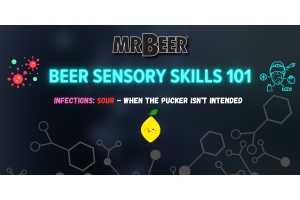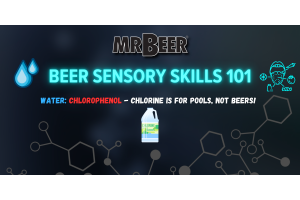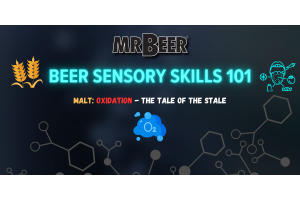Is Malt Extract "Twang" a Thing?
This is something that we hear quite often being extract-based brewers. When you look around online and in other homebrew forums, they will talk about how brewing with malt extract can have this certain twang to it or off-flavor.
However, there is no real proof this is a thing. If brewing with extract gave you a twang, then in every batch you brew would have this twang flavor, but that is not the case.
If people keep telling you that malt extra beers have twang or they taste a certain twang in your beer, then the culprit is most likely something different or they just are basis against extract brewing. Which is totally fine. Everyone should brew the way they want to and enjoy the beers that want to.
I am going to layout a few things that can lead to this perceived off-taste in your beer.
The first one is using high-quality malt extract.
You want to make sure that the malt extract you are using is of good quality. You always get what you pay for, so you want to make sure that you are using the best possible malt extract that is available. How the malt extract is prepared, where the grains are sourced from, all that is extremely important. That is why Coopers, our parent company who creates all our Malt Extracts is committed to quality.
They control the entire process from the grains in the filed to the malt extract that you are using to brew with. They take special precautions and invest in the equipment needed to make the best quality malt extract. From there own malting house to the top of line low-temperature evaporator that they use to pull the moisture from the wort. This keeps the integrity of the extract as adding heat at this stage can degrade the quality which affects the taste that you get in your final beer.
Next, you will want to make sure that you are using fresh ingredients. If you use expired or old malt extracts, it could impact the final taste you get in your beer. This would result in some off-flavors. You get the best beer from the freshest ingredients.
Another culprit for this can be sanitization. If you are not being thorough in your cleaning and sanitizing, then you can get off-flavors. It is always important to make sure that you are sanitizing everything that will come in contact with your brew. This is the most important step in brewing.
Another reason for this is the lack of temperature control. If you have big swings in your fermentation temperature from day to night each day then that will impact your beer. That can create some off-flavors in your beer. So, make sure to always hold the best consistent temperature that you can.
Some have voiced their concern that water choice caused a twang-y finished beer. As in, the water they used was high in chlorine or high in alkaline, and this is noticeable in the beer. For this issue, we always suggest using natural spring water, or filtered water and avoiding tap water that has a noticeable flavor/aroma
The last one is insufficient time for brewing. You want to make sure that you are following the directions that are provided with your recipe. You want to give the yeast the proper amount of time to eat all those sugars up.
So, if you do get a batch and the first bottle you taste has an off taste or something is just not right then let the beer age. You will want to let the bottles sit out at room temperature for another few weeks. This bottle conditioning will help clean up your off-flavors and can dramatically improve the taste of your beer.
Homebrewing, much like baking cookies at home instead of purchasing them at the store, means that your process must be tried, tested, and won't be perfectly executed every single time. Still, the claim that extract will hold you back from brewing a commercial-quality beer or always cause a twang is simply not true. Too many extract beers have won competitions and wowed beer fans for the extract to be cursed with a noticeably peculiar flavor. So check that expiration date, stay determined, and keep brewing.





